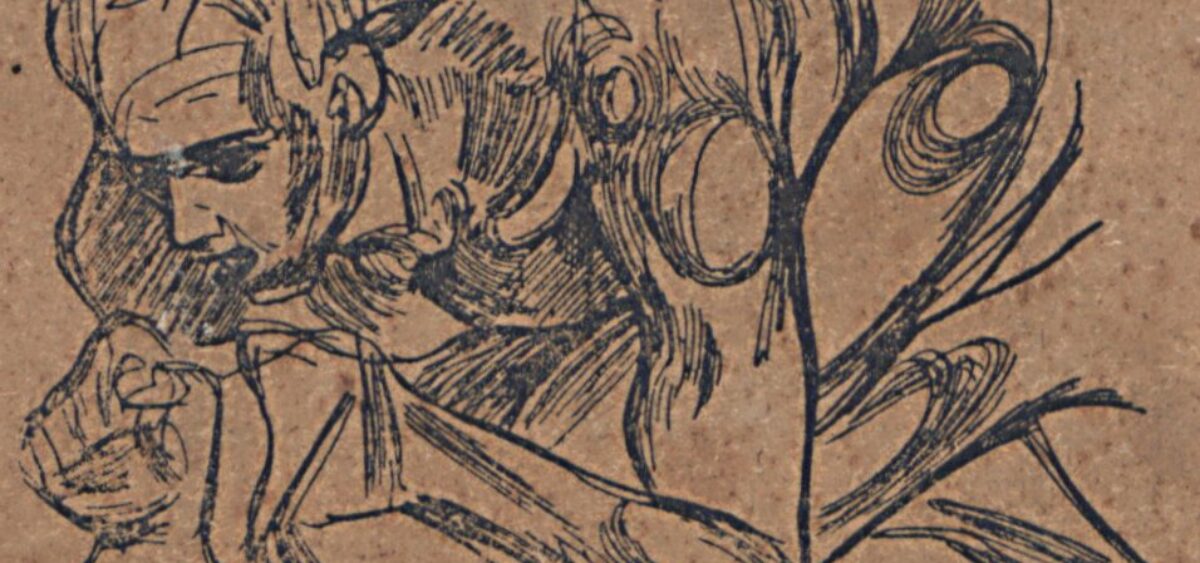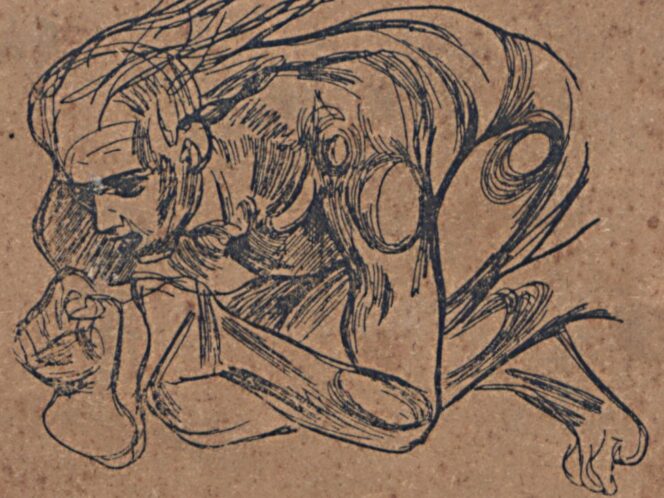
“The Sloven” is a classic railway horror story written over a century ago by Stefan Grabiński (1887–1936). Dubbed the ‘Polish Lovecraft’ or ‘Polish Poe’, Grabiński pioneered fantasy fiction in the early 20th century, creating some of the most remarkable and scary horror stories in the genre. He was especially interested in spiritualism, paranormal activity, demonology and… the railway. In 1919, he published The Motion Demon (Demon ruchu), a book of short stories connected by the theme of railway travel: the unexplained catastrophes, ghost trains, abandoned stations and unearthly creatures. The book was very well received by both critics and readers, and remains Grabiński’s most acclaimed and popular work some 100 years after its publication. “The Sloven”, a story about eerie premonitions and imminent catastrophes, comes from that volume.
After making the rounds of the coaches charged to his care, the old conductor, Blazek Boron, returned to the nook given over exclusively to his disposition, the so-called “place designated for the conductor.”
Wearied by an entire day of tramping through the coaches, hoarse from calling out stations in the fog-swelled autumn season, he intended to rest a while on his narrow oilcloth-upholstered little chair; a well-earned siesta smiled worthily on him. Today’s trip was actually over; the train had already made all its evenly distributed and short distance stops and was heading to the last station at a fast clip. Until the end of the trip Boron would not need to jump up from the bench and run through the coaches for several minutes to announce to the world, with a worn-out voice, that such and such station is here, that the train will stop for five minutes, ten minutes, or an entire lengthy quarter hour, or that the time has come to change trains.
He put out the lantern fastened to his chest and placed it high above his head on a shelf; he took off his greatcoat and hung it on a peg.
Twenty-four hours of continuous service had filled his time so tightly that he had eaten almost nothing. His body demanded its rights. Boron took out victuals from a bag and began to nourish himself. The conductor’s grey, faded eyes settled on the coach window and he looked at the world beyond. The glass, rattling with the coach’s tossing, was constantly smooth and black—he saw nothing.
He tore his eyes from the monotonous picture and directed them toward the corridor. His glance slid over the door leading to the compartments, went to the wall of windows opposite, and rested on the boring beaten pathway.
He finished his “supper” and lit a pipe. He was, in truth, still on the job, but in this area, particularly before the final destination, he did not fear the supervisor.
The tobacco was good, smuggled at the border; it smoked in circular, fragrant coils. From the conductor’s lips spun out pliable ribbons and,








